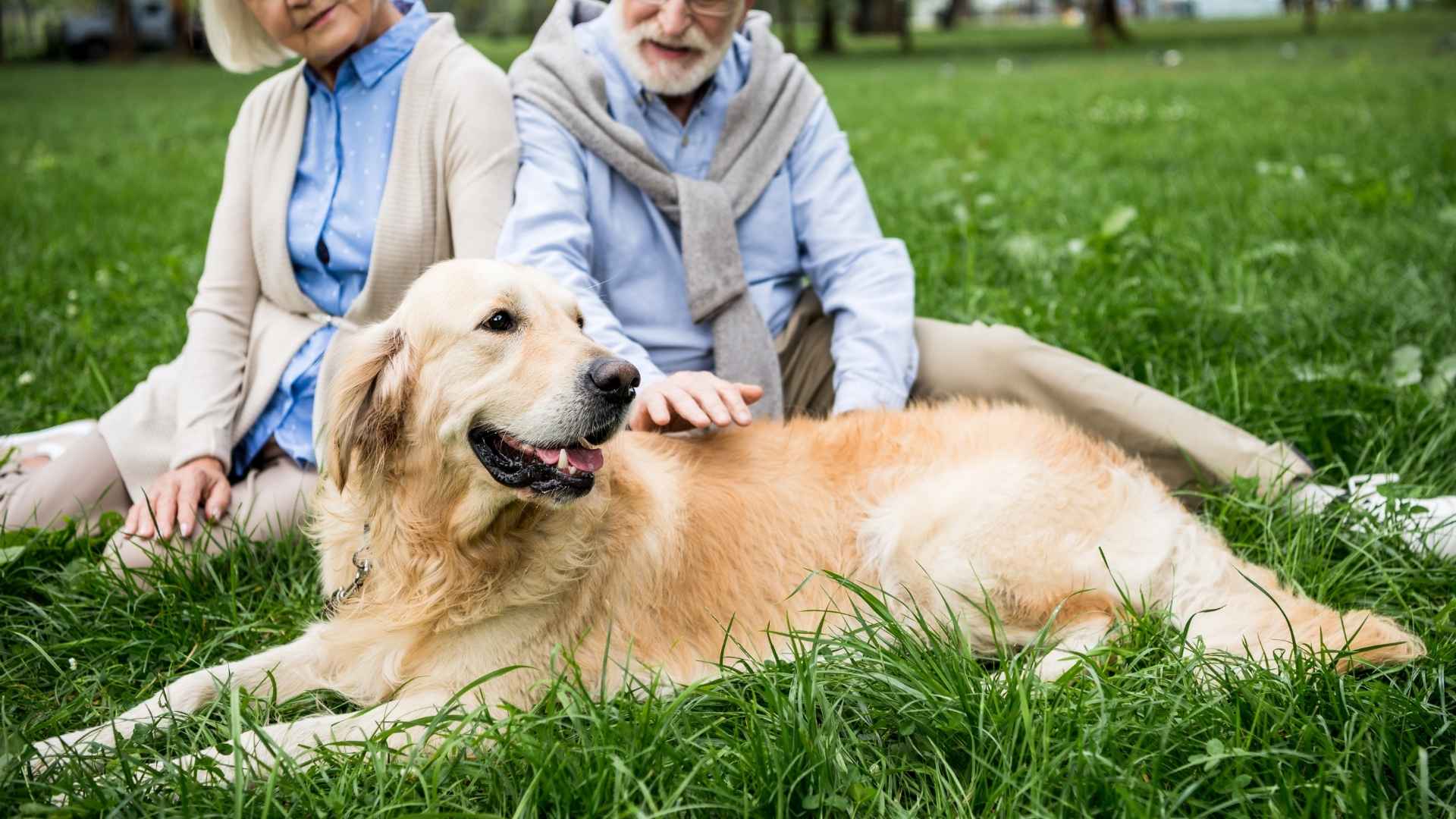For elderly homeowners, a great guard dog offers more than just security—it brings comfort, confidence, and unwavering loyalty. A well-chosen breed won’t just protect your home; it’ll be a devoted friend, always by your side.
But not all guard dog breeds are the right fit. You need one that’s naturally protective without being too aggressive, smart enough to distinguish threats, and calm enough to be a loving companion. The best breeds strike a perfect balance between alertness and affection, making them ideal for seniors who want both security and companionship.
With the right guard dog, you won’t just feel safer—you’ll have a furry friend who looks out for you, offering protection and unconditional love. Ready to find the perfect four-legged guardian? Let’s dive in!
Guard Dog Breeds for Elderly Homeowners
1. Schnauzer
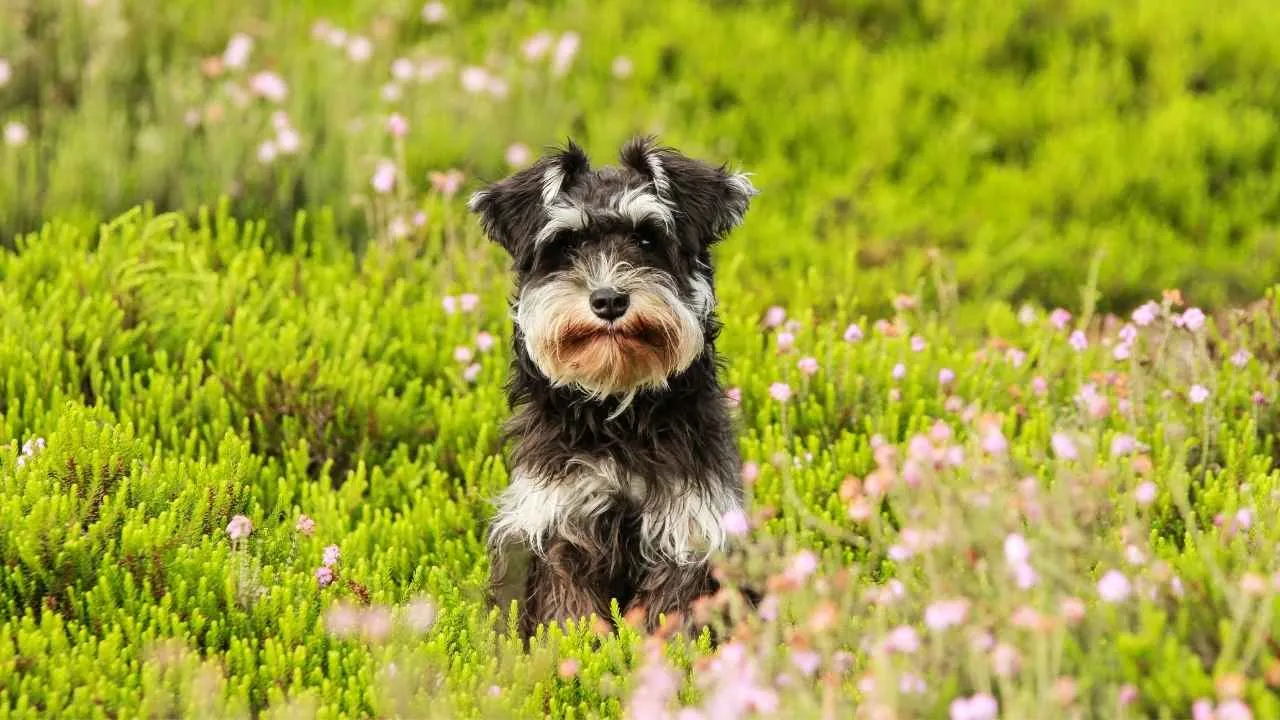
The Schnauzer might look distinguished with its iconic beard and eyebrows, but don’t be fooled by its sophisticated appearance—this breed is a natural-born protector. According to PetMD, Mini Schnauzers a highly alert and intelligent dogs and are known for their keen sense of awareness, making them an excellent watchdog for elderly homeowners.
Schnauzer has the perfect blend of vigilance and affection. Unlike some guard dogs that can be overly intense, Schnauzers are naturally wary of strangers but deeply loyal to their owners. They thrive on companionship, making them a great choice for seniors who want security and a devoted friend.
Schnauzers are highly intuitive, often sensing when their owners are anxious or unwell. This emotional intelligence makes them excellent companions, especially for elderly individuals who live alone. Their presence alone is enough to provide both comfort and confidence in any situation.
One of the best things about Schnauzers is their adaptability. Whether you live in a small home, an apartment, or a house with a yard, they adjust well to different living spaces. They don’t require excessive room to roam, but they do need mental stimulation and regular exercise to keep their sharp minds engaged.
Unlike some heavy-shedding breeds, Schnauzers have a wiry, low-shedding coat, which makes them a great option for seniors who prefer a cleaner home. However, their coat does require regular grooming to prevent matting and maintain their signature look. A well-groomed Schnauzer isn’t just practical—it’s a stylish guardian at your doorstep!
Quick Fact: Schnauzers were originally bred to guard farms and keep rodents away. Their strong work ethic and protective instincts remain just as sharp today!
2. Scottish Terrier
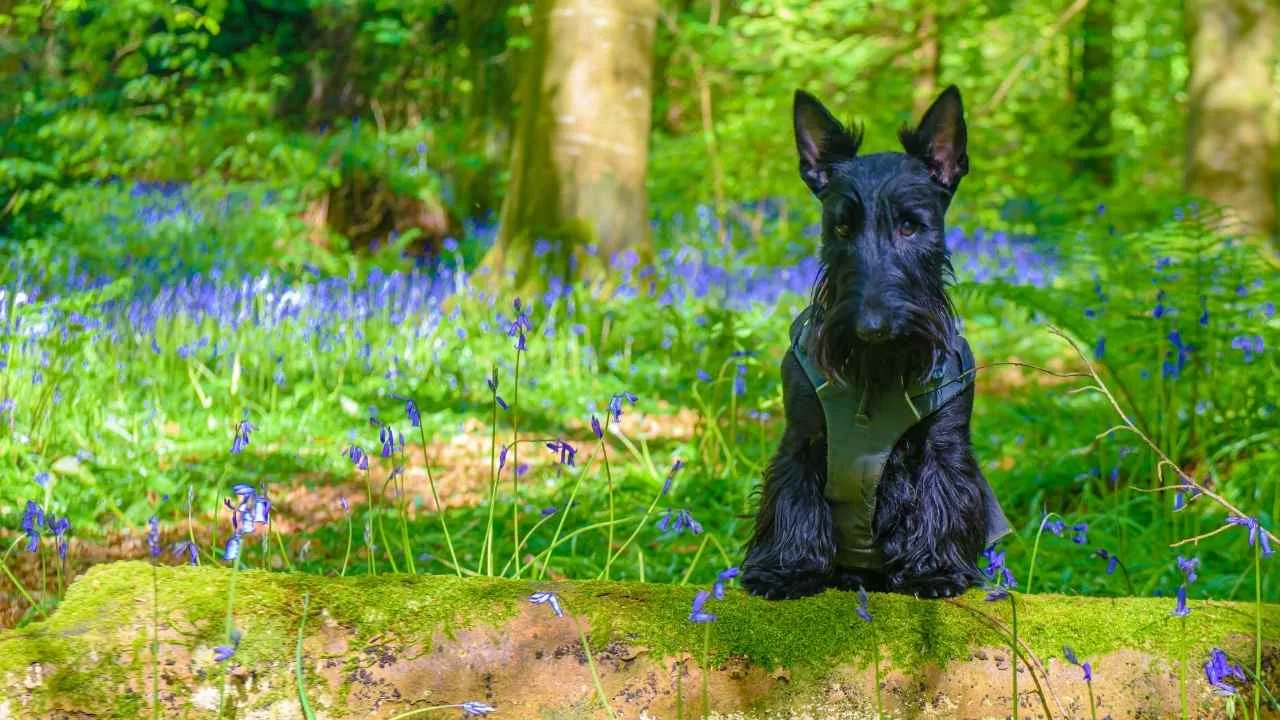
Small but mighty, the Scottish Terrier—often called the “Scottie”—is a powerhouse of courage and devotion. Despite its compact size, this breed has an unwavering protective instinct. According to WebMD, Scotties have a vivid personality and a bold, no-nonsense attitude when guarding their territory. They won’t back down from a challenge, making them a surprisingly effective watchdog.
Unlike clingy breeds, Scotties are confident and capable of making their own decisions—an essential trait in a guard dog. They don’t need constant attention, yet they remain deeply loyal to their owners, keeping an eye on things even when they seem relaxed.
These little guardians carry themselves with a dignified, almost aristocratic attitude, yet they won’t hesitate to stand their ground. Their deep, thunderous bark makes anyone think twice before approaching your home, even if they’re only around 20 pounds!
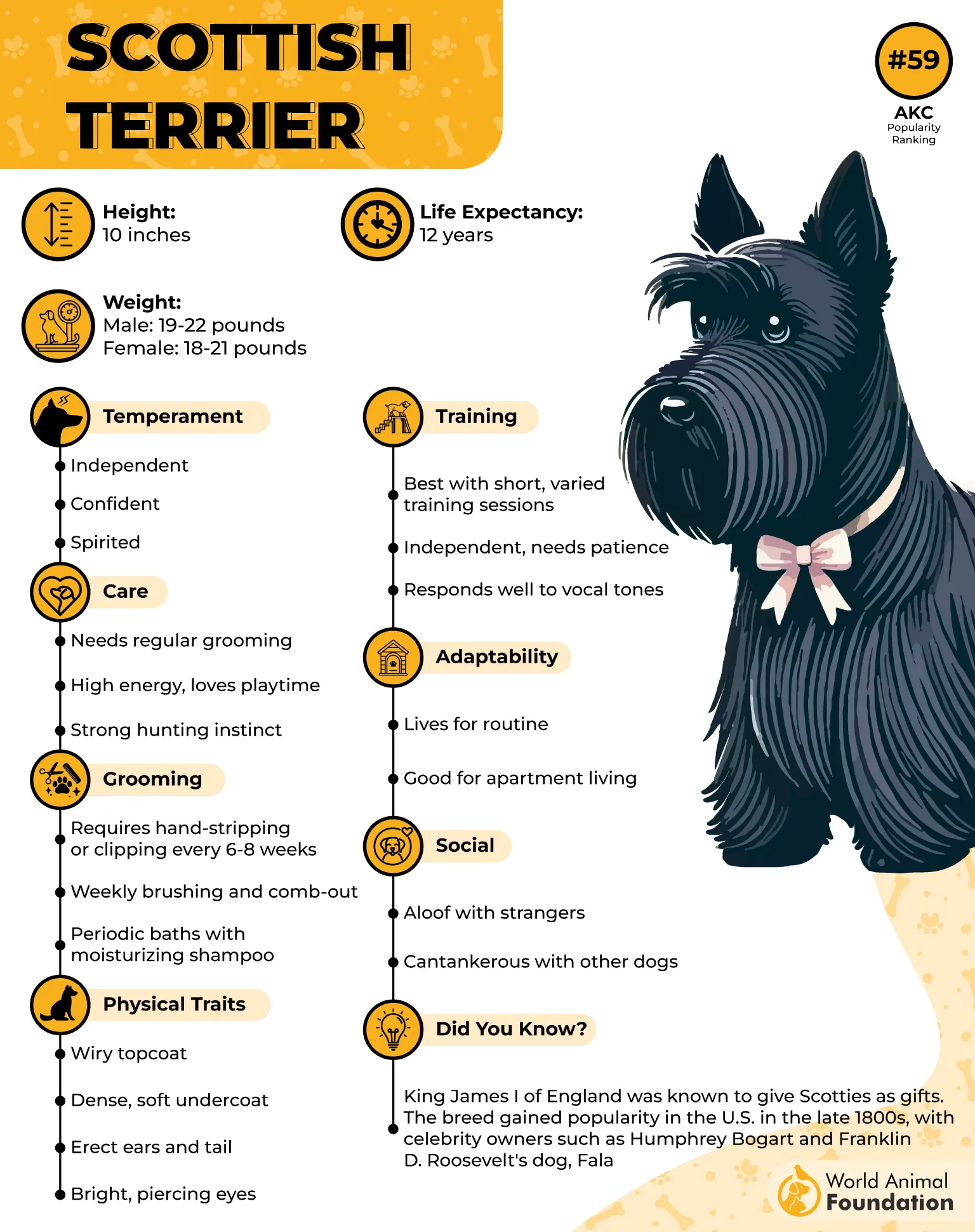
Scotties aren’t just about security—they also have a fun and playful side. They love a good game, especially ones that engage their sharp minds. Puzzle toys and interactive play keep them entertained, making them a great choice for elderly homeowners who want a guard dog and a spunky companion.
Training a Scottie can be interesting because of their independent streak. They’re intelligent but not blindly obedient, so they respond best to firm yet patient training. Once they understand the rules, they follow them with a sense of duty, making them a reliable little protector.
3. English Mastiff
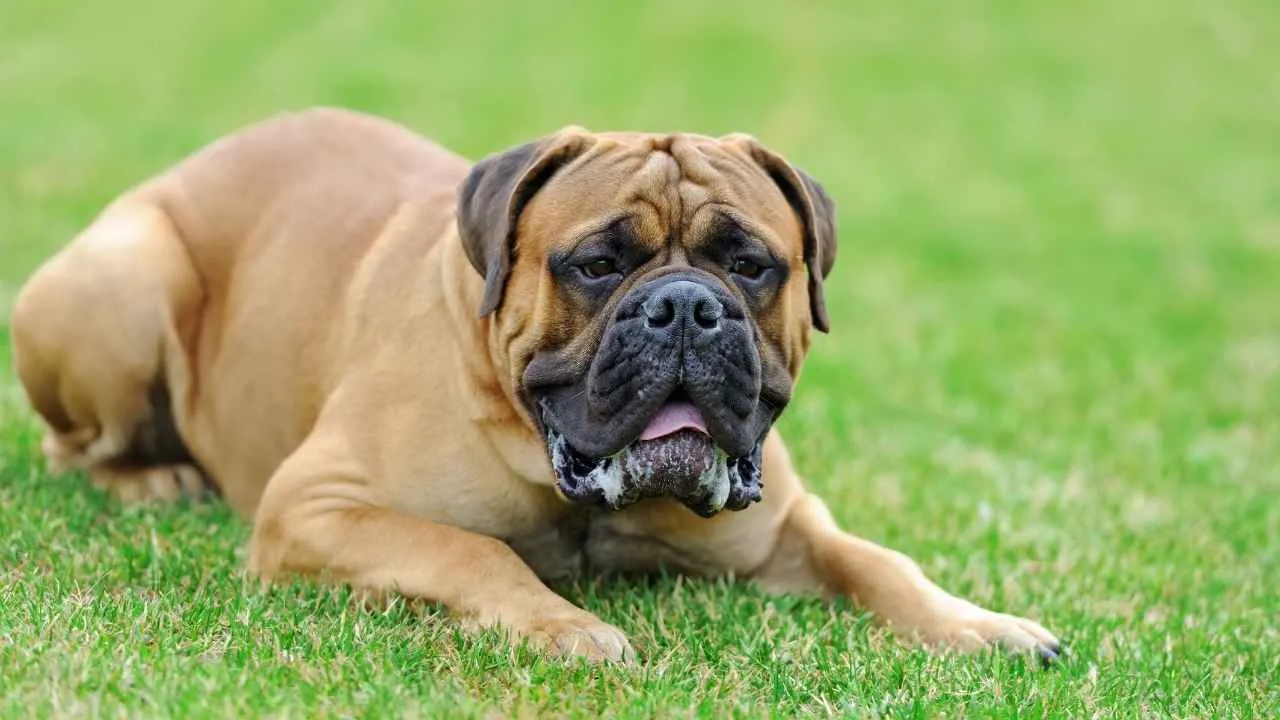
Imagine having a guardian that doesn’t need to bark to intimidate—just their sheer presence is enough to make trespassers think twice. That’s the English Mastiff for you. This massive, muscular breed is one of the most effective guard dogs for elderly homeowners, not because of aggression but because of their natural confidence and protective instincts.
According to Hill’s Pet, Mastiffs are known for their affectionate nature with their owners. Despite their imposing size, they are incredibly gentle and loving, often leaning on their humans or curling up beside them as if they were tiny puppies. This mix of protection and companionship makes them the perfect home guardian.
Unlike high-energy breeds that demand constant activity, Mastiffs are content with short walks and a comfortable spot indoors. This is something that makes them ideal for elderly homeowners who may not have the stamina for long exercise sessions but still want a loyal and watchful companion.
Because of their massive size, Mastiffs need space, but they are surprisingly adaptable to indoor living. As long as they have enough room to stretch out and a cozy spot to relax, they are content. However, potential owners should be prepared for some drooling—it’s just part of the package with these lovable giants!
Mastiffs may not be the type to bark constantly, but when they do, you’ll know it. Their deep, thunderous bark is enough to send chills down anyone’s spine, making them a fantastic deterrent even without aggressive behavior. They have a strong territorial instinct, ensuring that no one enters your home uninvited.
4. Anatolian Shepherd
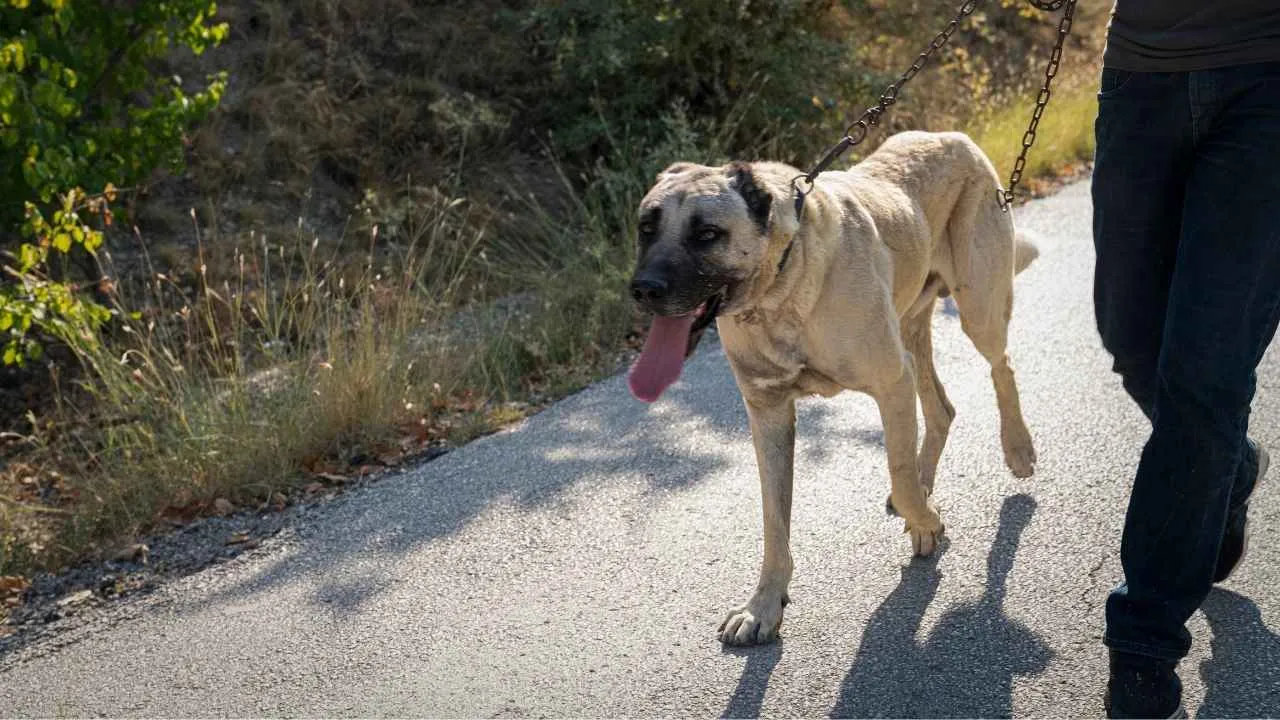
Anatolian Shepherd is an ancient guardian breed known for its intelligence, independence, and unmatched protective instincts. Originally bred to guard livestock against predators, this breed takes its job seriously—even if the “flock” it’s protecting is just you and your home.
This breed isn’t for someone who wants a cuddly lapdog—it’s for homeowners who need a reliable, self-sufficient protector. Anatolian Shepherds are naturally suspicious of strangers and will position themselves between you and anything they perceive as a threat. You’ll never have to worry about unexpected guests sneaking onto your property with an Anatolian on duty!
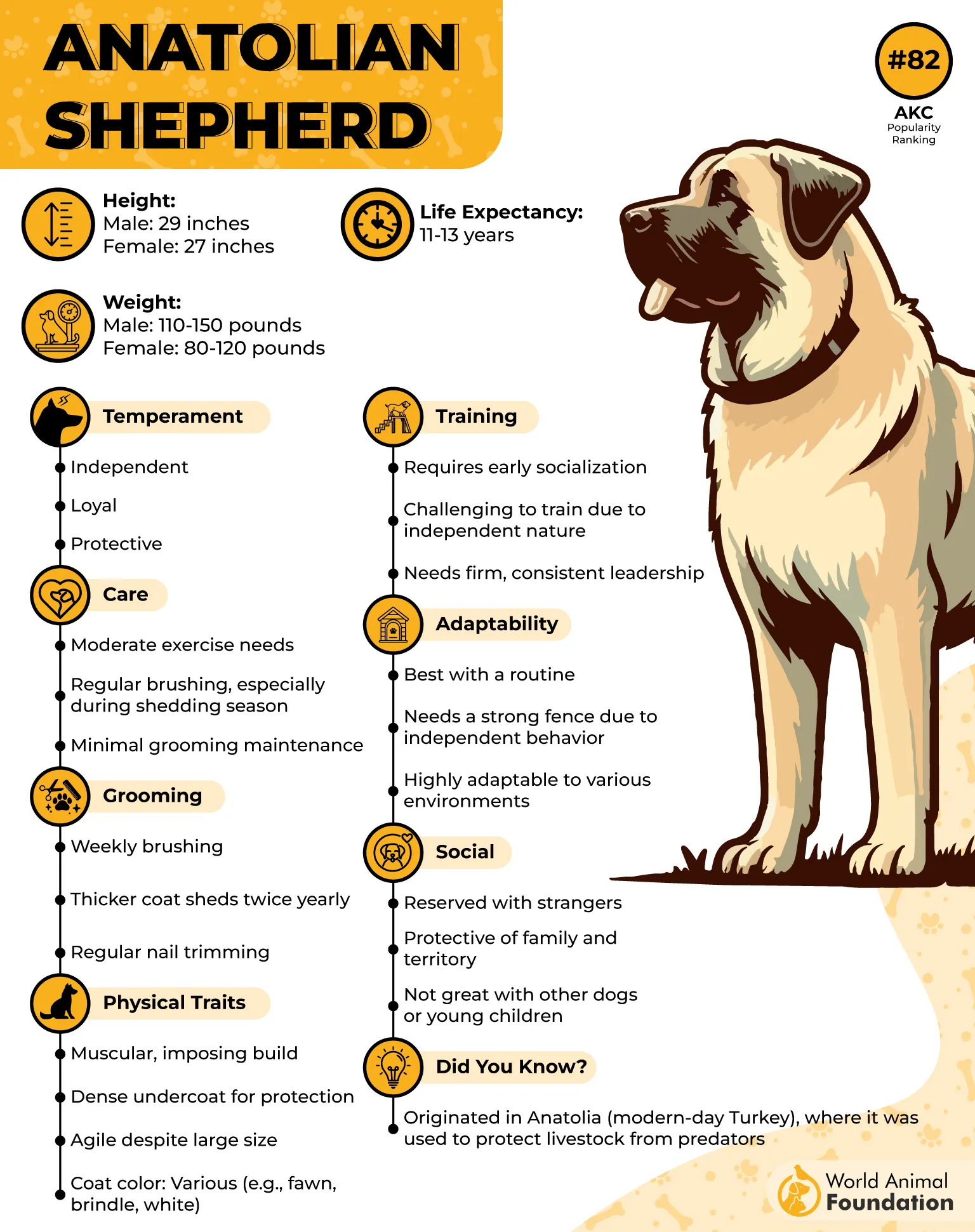
These dogs are constantly scanning their environment, always alert but never unnecessarily aggressive. Unlike some guard dogs that bark at every little noise, Anatolians only react when they know something is off, which makes them perfect for seniors who want security without the noise.
According to AKC, they are incredibly intelligent but also independent thinkers. Unlike breeds that live to please their owners, Anatolians respond best to firm, respectful leadership. They thrive when they understand their role, making proper training crucial for a well-balanced and reliable guardian. Training an Anatolian Shepherd takes experience and patience.
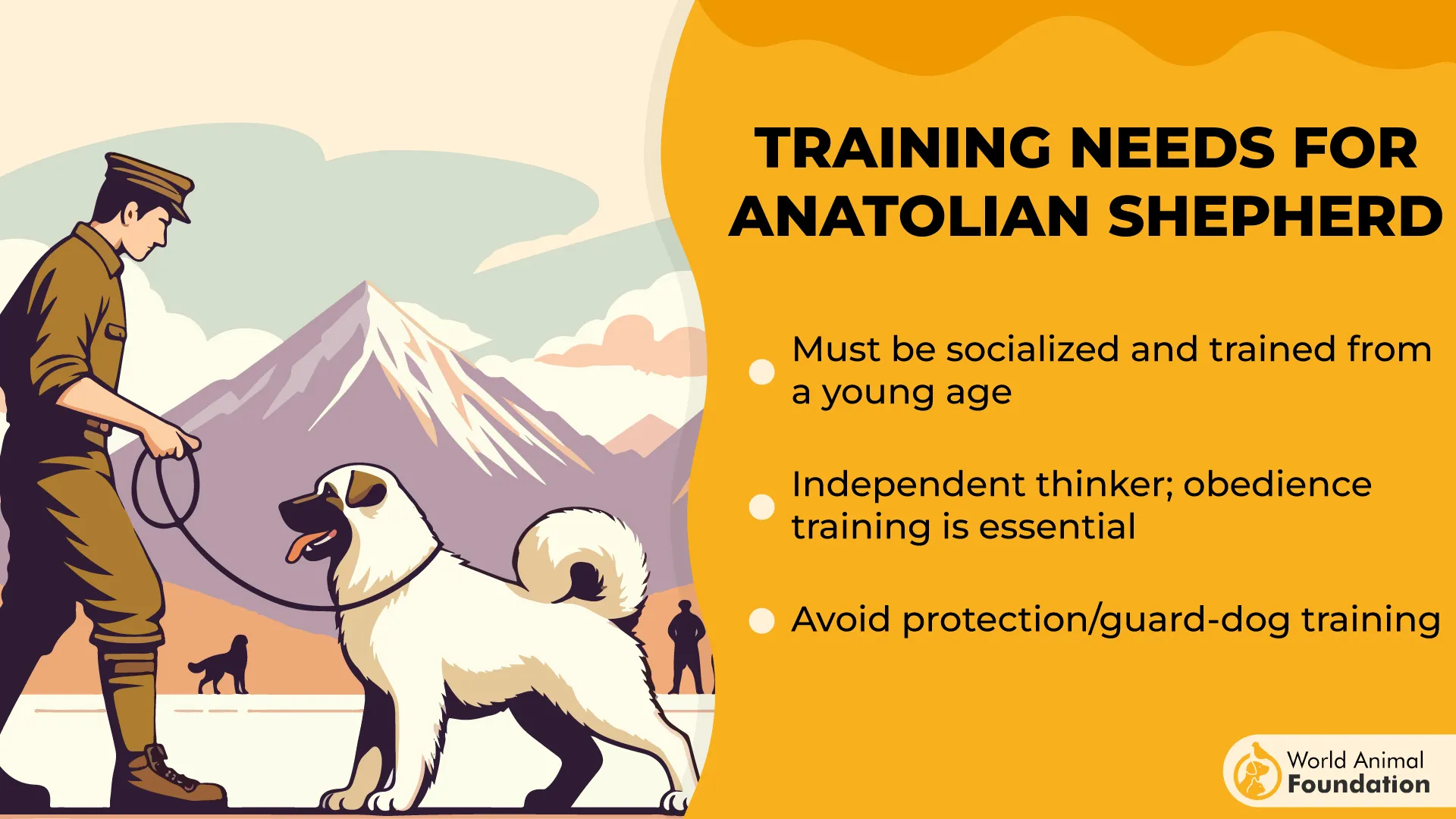
One unique thing about Anatolian Shepherds is their ability to judge threats accurately. They won’t react to harmless situations, but if they sense something truly dangerous, they will take action without hesitation. This makes them one of the most effective natural guard dogs without unnecessary aggression or excessive barking.
5. Boerboel
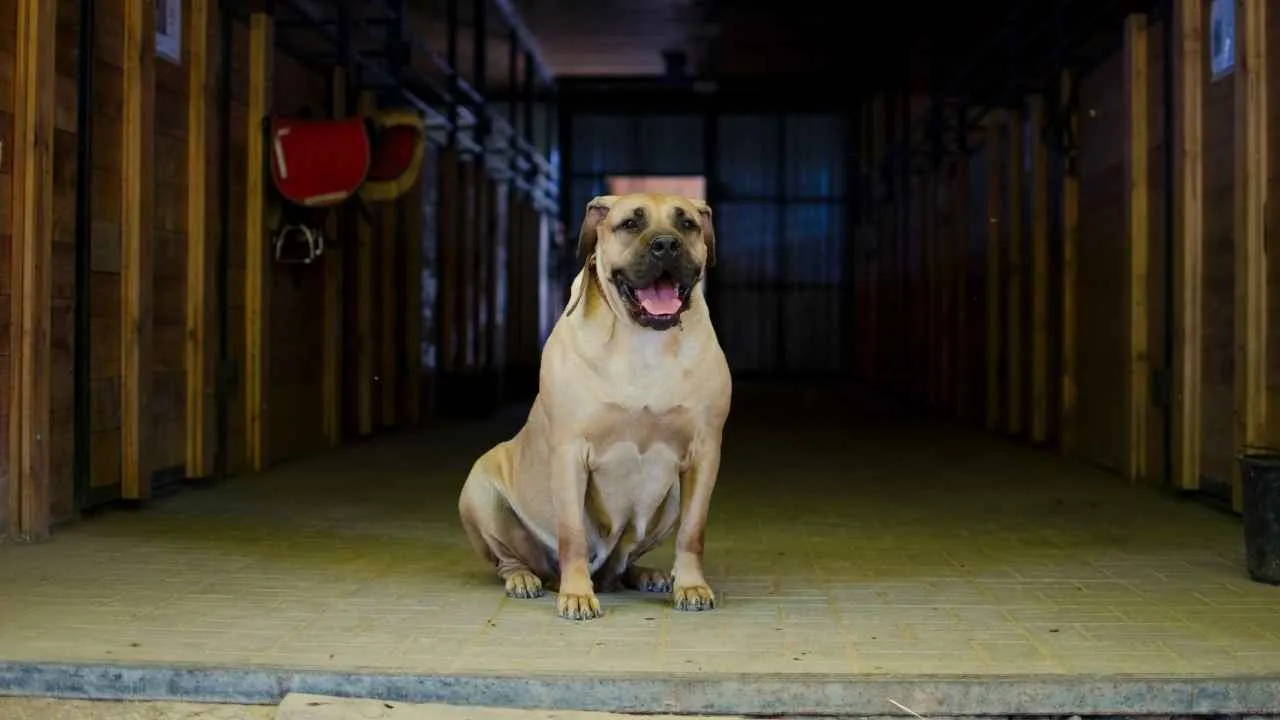
Meet the Boerboel, a powerful South African mastiff breed known for its fearless protection and unwavering devotion to its owner. Originally bred to guard remote farms against intruders and wild animals, this dog is a natural protector. For elderly homeowners, the Boerboel offers security and a steadfast, loving presence in the home.
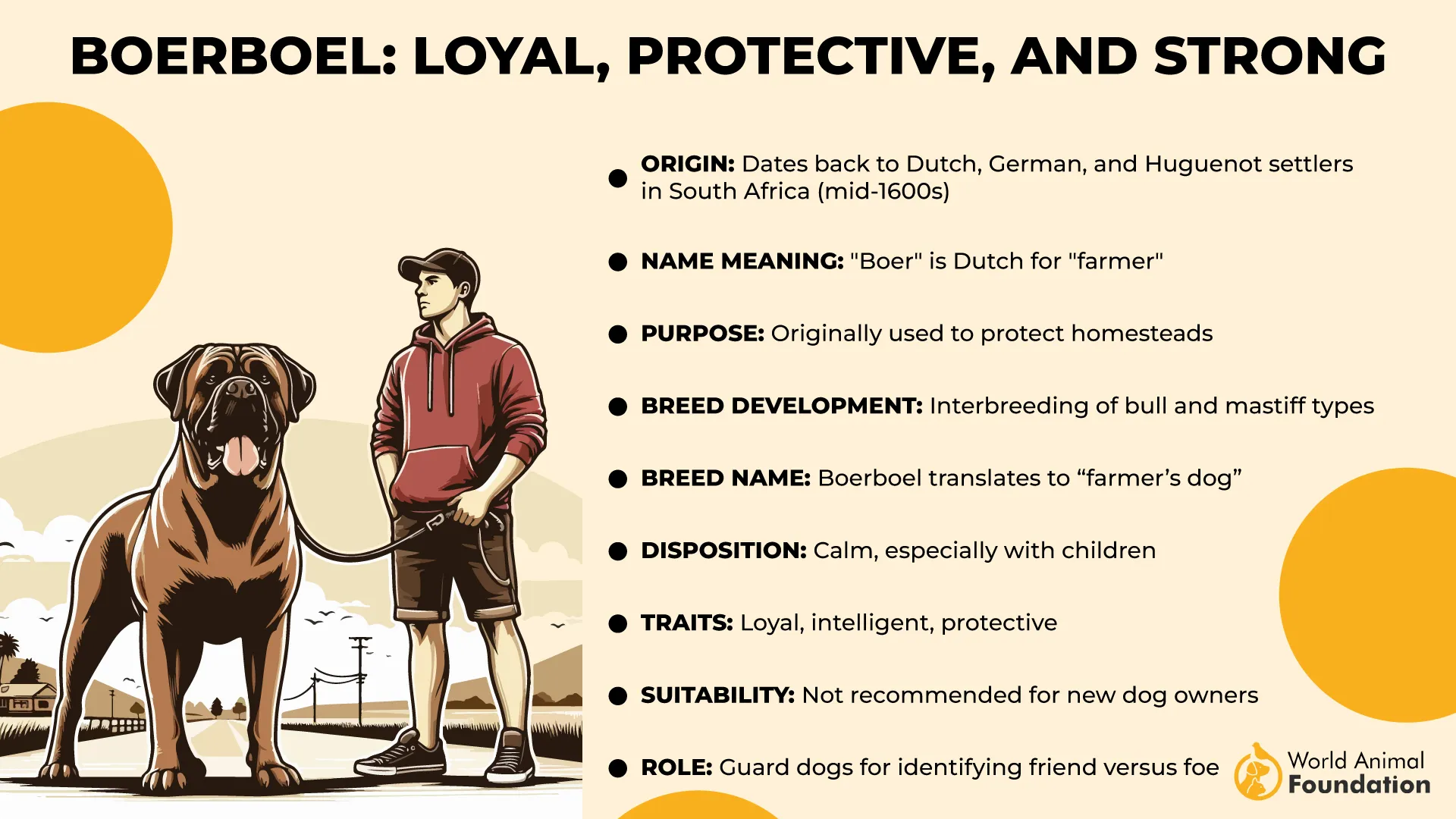
Boerboels are remarkably level-headed. They don’t waste energy on unnecessary reactions but will stand firm if they sense a real threat. With their muscular build and confident stance, their presence is enough to deter intruders. However, this breed won’t hesitate to act if danger does arise.
Thinking of a dog that listens well and learns fast? According to AKC, Boerboels are highly smart, loyal, intelligent, and responsive to training. They naturally desire to please their owners, making them easier to train than some other large guard dogs. However, they do need a confident owner who can establish leadership early on—otherwise, their strong-willed nature might take over.
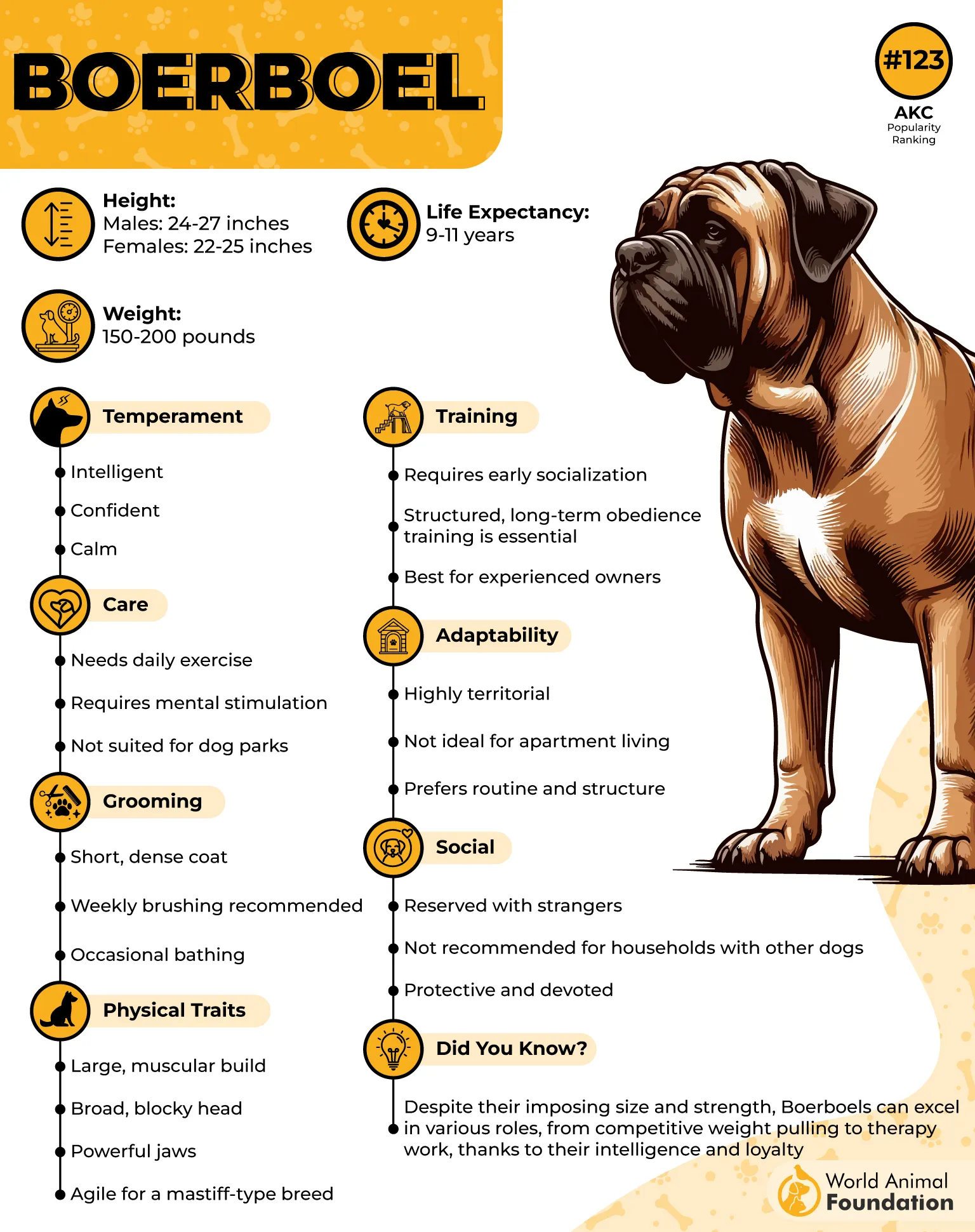
Boerboels are surprisingly adaptable when it comes to exercise. They enjoy being active but don’t require endless hours of running. A good walk and some playtime in a secure yard will keep them happy. More importantly, they need mental stimulation—puzzle toys, obedience training, and social interaction to keep their sharp minds engaged.
One key advantage Boerboels have over many other guard breeds is their even temperament. They are naturally calm in familiar settings but become highly alert if something seems off. Unlike nervous or hyperactive breeds, Boerboels maintain a stable demeanor, which is perfect for elderly homeowners who need a reliable yet controlled guardian.
6. Doberman Pinscher
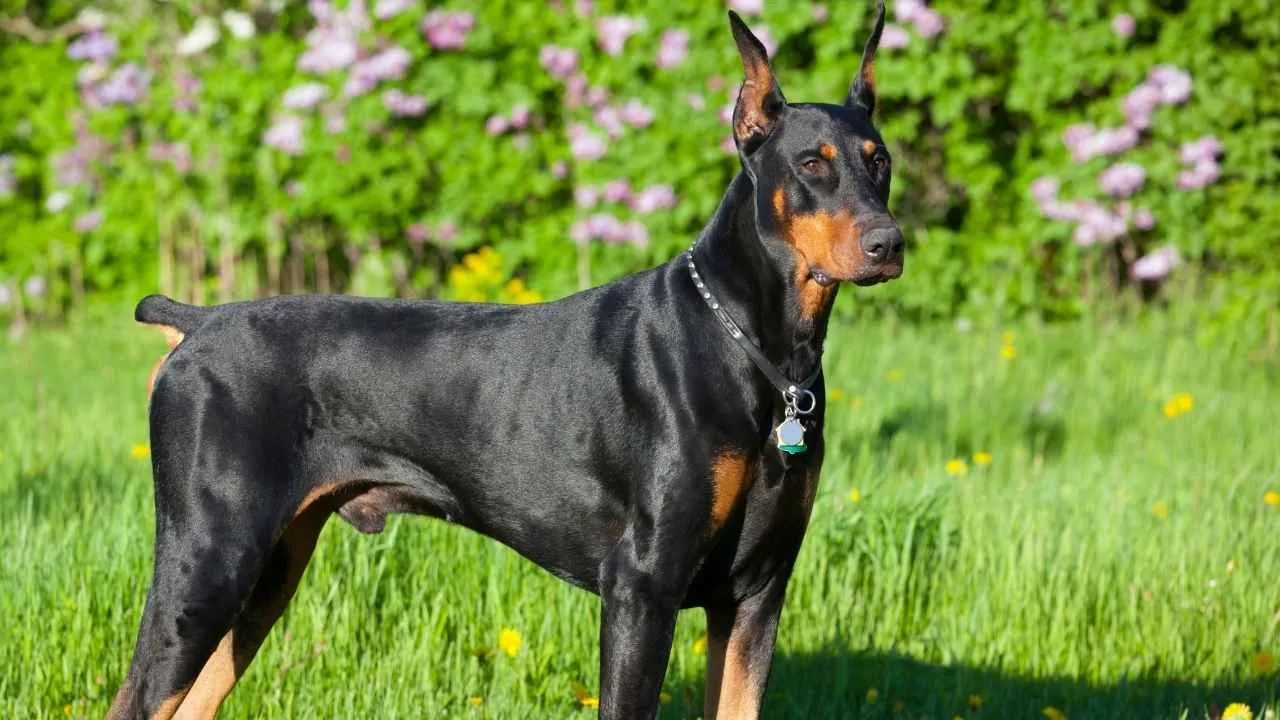
Need a guard dog that’s fast, intelligent, and fiercely loyal? The Doberman Pinscher is one of the most well-rounded protection dogs, combining speed, obedience, and a natural instinct to guard its family. Originally bred for personal protection, this breed has an incredible work ethic and a strong sense of duty, an excellent choice for elderly homeowners who want both security and companionship.
According to Britannica, Dobermans are agile and athletic, capable of reacting in an instant. Their lean, muscular build allows them to move swiftly. If a potential intruder even thinks about stepping too close, a Doberman can send the intruder running just with its intense gaze. And if that’s not enough? This dog won’t hesitate to step up and defend its owner.
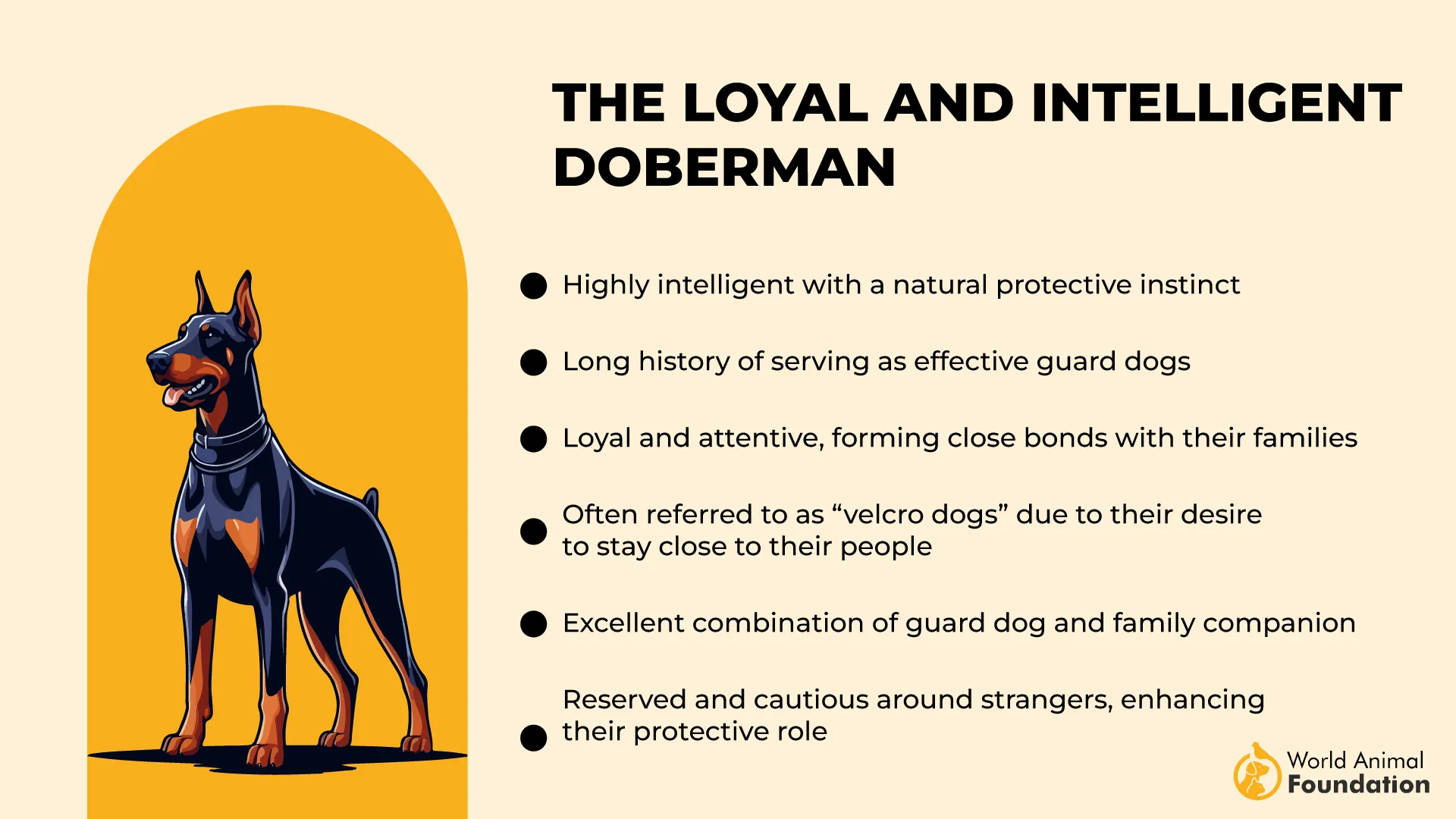
One of the best things about the Doberman is its deep emotional connection to its owner. They are known for being velcro dogs, as these dogs stick close to their favorite human and follow them everywhere. For an elderly homeowner, this means constant companionship, loyalty, and a built-in security system that never takes a break.
A couple of brisk walks and interactive playtime are usually enough to satisfy them. What’s more important is mental stimulation—they love problem-solving games, obedience tasks, and even agility training. Keeping their minds engaged helps them stay calm and well-behaved.
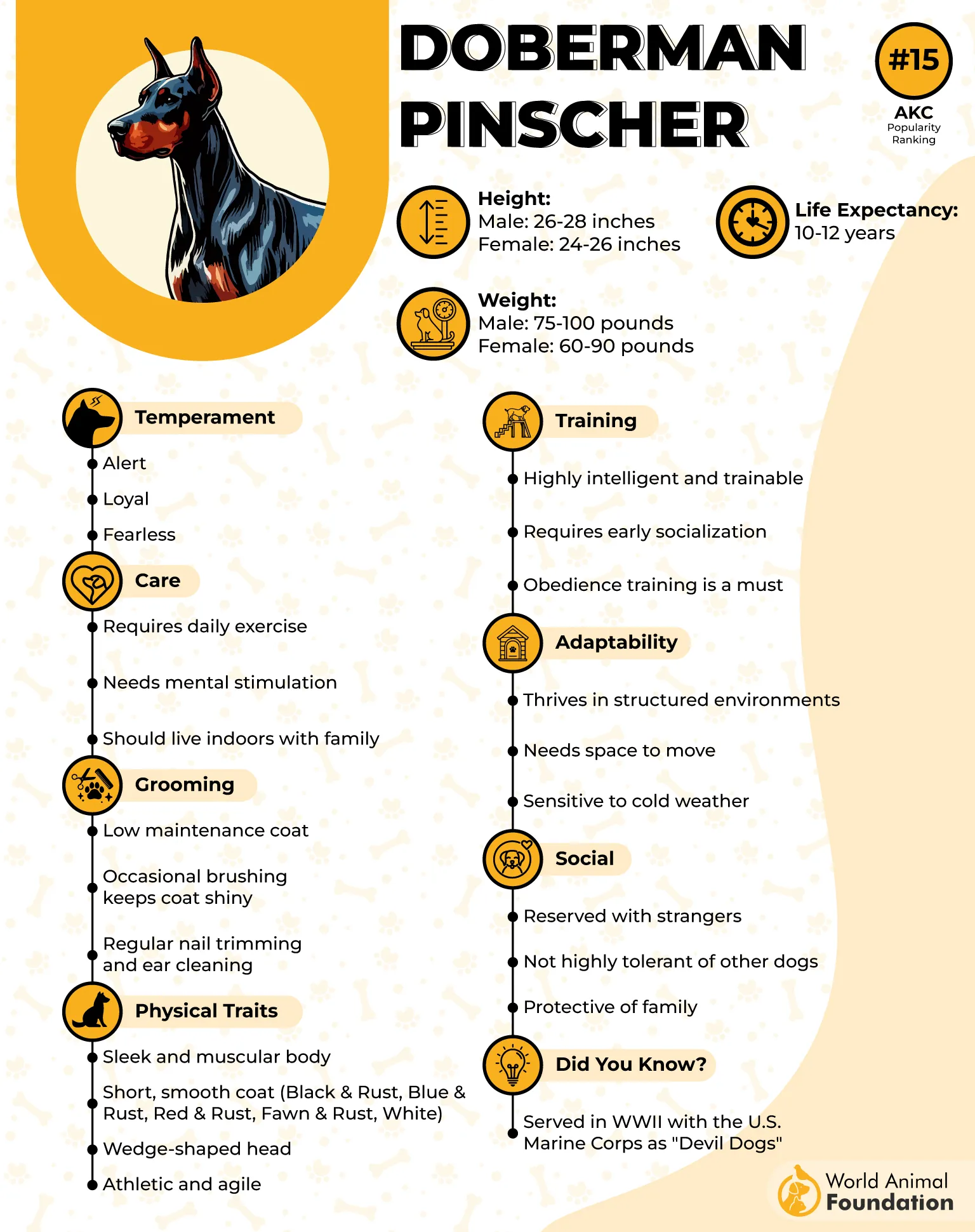
Dobermans also have a natural protective instinct that doesn’t require special training. They instinctively guard their home and family, but won’t become aggressive unless truly necessary. A well-trained Doberman is a perfect balance between a fearless protector and an affectionate companion.
7. Rottweiler
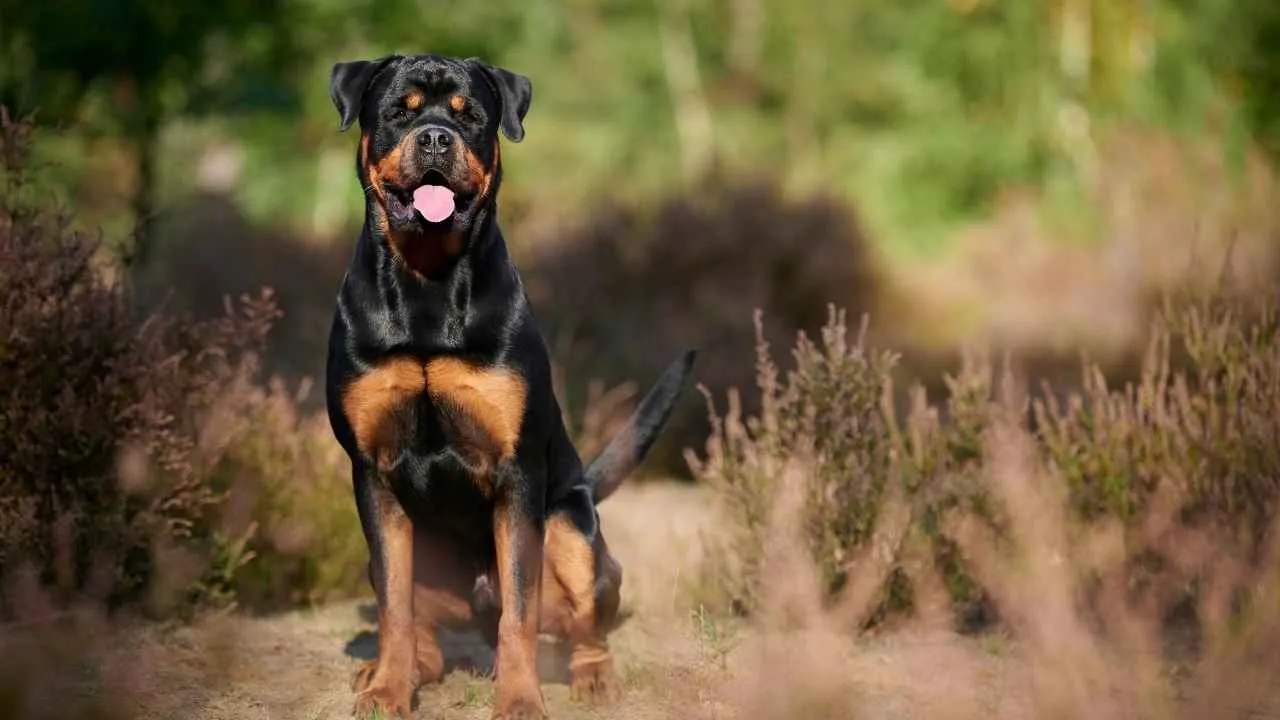
Originally bred to drive cattle and protect valuables, these dogs are known for their unwavering devotion to their owners. For elderly homeowners, a Rottweiler isn’t just a guardian—it’s a constant, dependable companion that offers protection and affection.
Rottweilers are naturally calm and composed and don’t overreact to every little noise or movement. Unlike anxious guard breeds that bark excessively, these dogs have a measured response—they assess situations before taking action. But when they do sense danger, their sheer size and presence make them an intimidating deterrent.
According to Petplan, they’re highly intelligent dogs and quick learners too, responding well to structured training. However, they do best with a firm but loving hand. Consistency is key—this breed respects leadership and thrives when given clear rules. For seniors, this means a dog that listens and behaves predictably rather than acting on impulse.
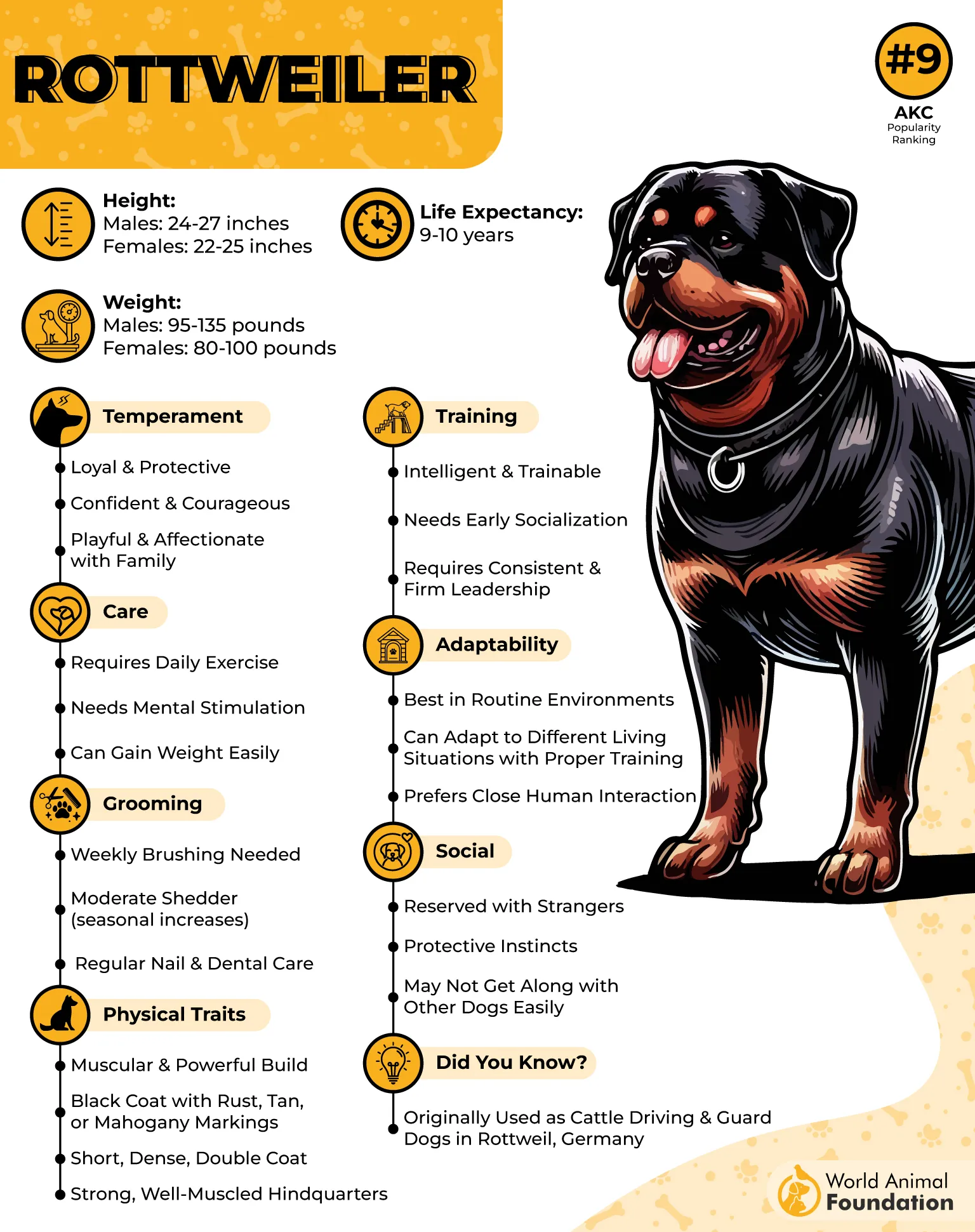
Worried about exercise needs? While Rottweilers are strong and active, they don’t require endless running. A good walk, playtime, and mental challenges like obedience drills or puzzle toys satisfy them. They love structured activities and thrive when given a “job” to do.
Despite their tough exterior, Rottweilers have a soft side. They’re known to be affectionate cuddlers with their favorite people. However, they do have a strong guarding instinct, so early socialization is key to ensuring they can distinguish between friendly visitors and real threats. With proper training, they become the perfect mix of guardian and gentle giant.
Conclusion
Selecting the best dog breeds for elderly homeowners requires balancing home security, companionship, and ease of care. Guard dog breeds should be loyal dogs with an instinct for protection while being affectionate and well-suited to a senior’s energy level. Giant Schnauzers, Anatolian Shepherds, and Saint Bernards are excellent guard dogs due to their protective nature and strong-willed temperament. For those preferring medium-sized dogs, Border Collies, Cocker Spaniels, and Australian Shepherds provide companionship and alertness to strangers.
A guard dog should be intelligent, easy to train, and responsive to consistent training to manage excessive barking and ensure compatibility with other pets and dogs. Proper training enhances their protective instincts while maintaining their role as excellent companions. High-energy dogs like Border Collies and Australian Shepherds thrive on intense exercise. In contrast, low-maintenance dogs such as the Shih Tzu and Cocker Spaniel require less activity but still need mental stimulation.
Ultimately, the best dog for seniors should match their active lifestyle or preference for a calmer routine. Large dogs like Saint Bernards and Anatolian Shepherds offer strong home security, while medium-sized dogs such as Giant Schnauzers and Border Collies are both protective and great playmates. Smaller breeds, like the Shih Tzu, provide companionship with minimal effort. Whether selecting a high-energy or moderate-energy level breed, ensuring proper training, and addressing health problems.


